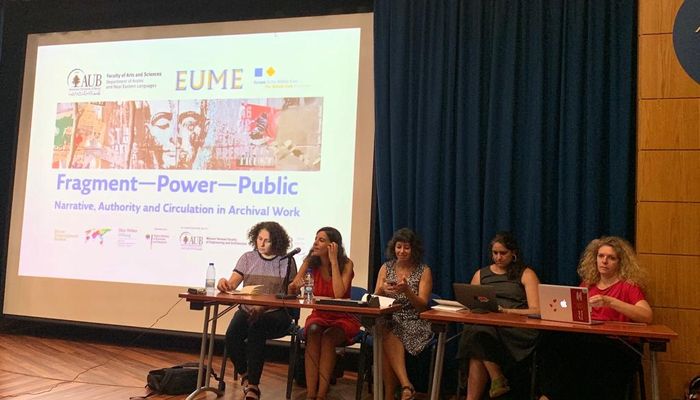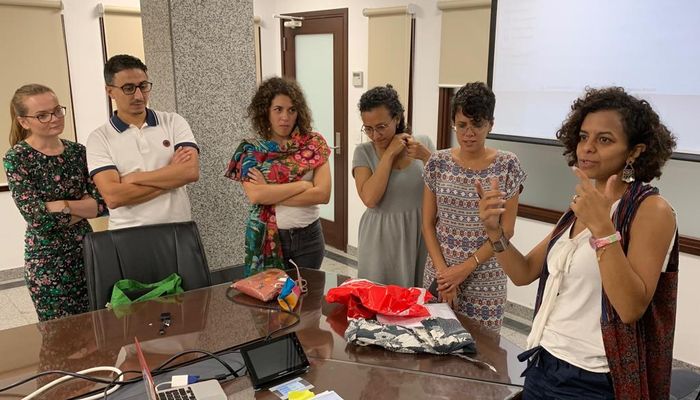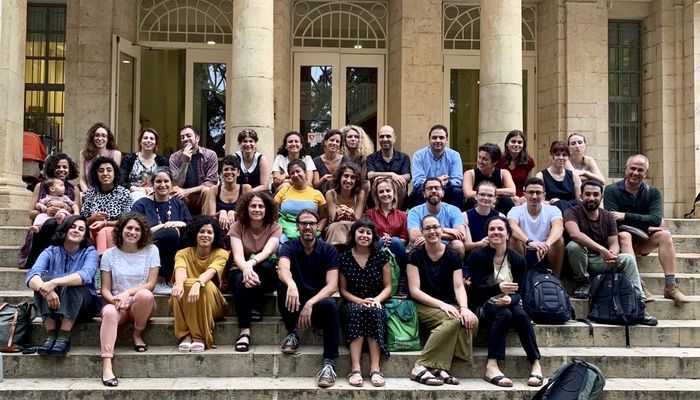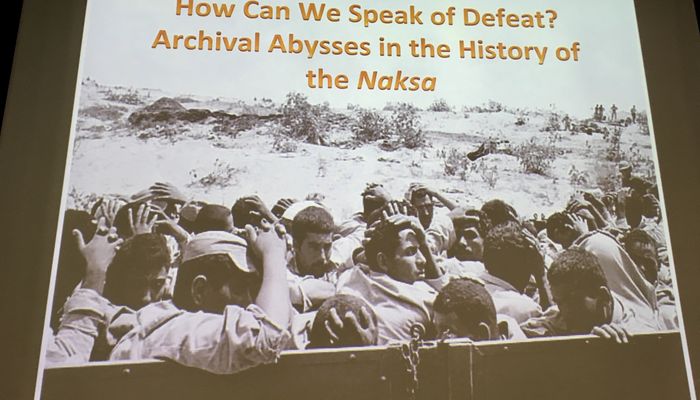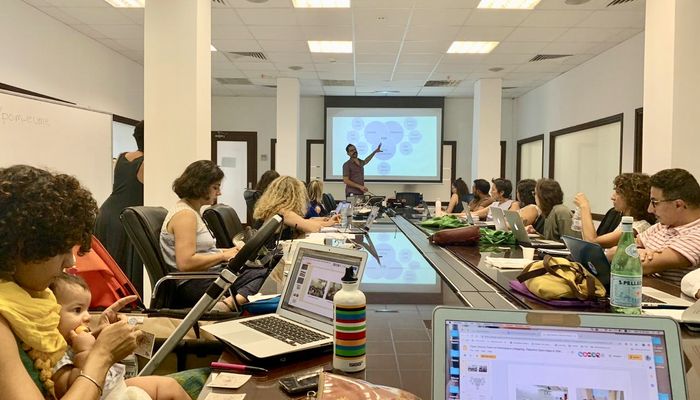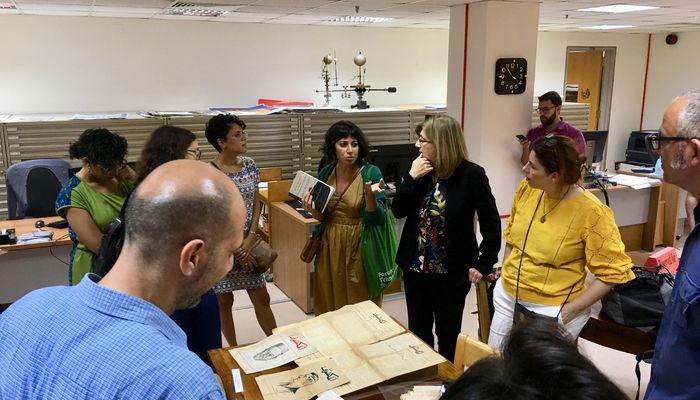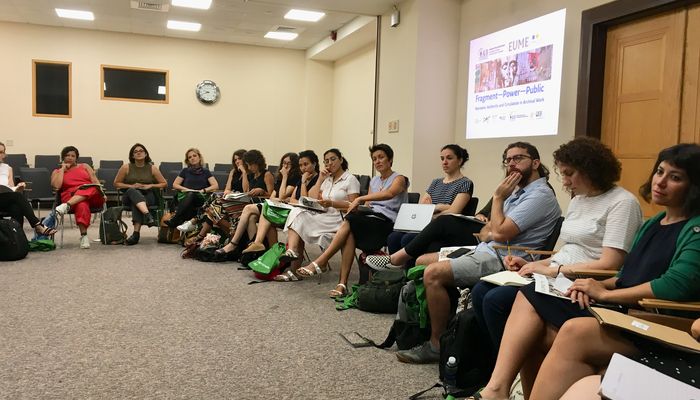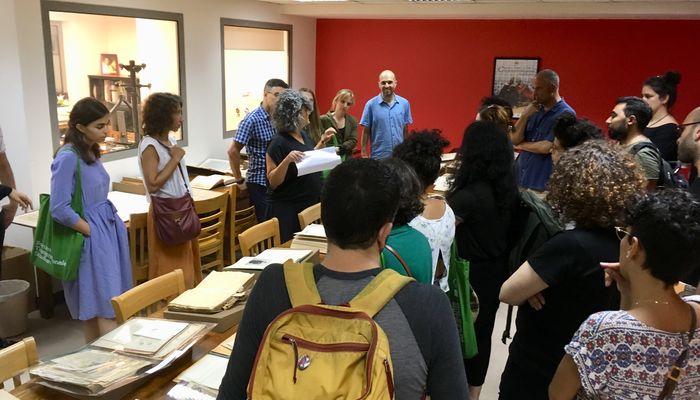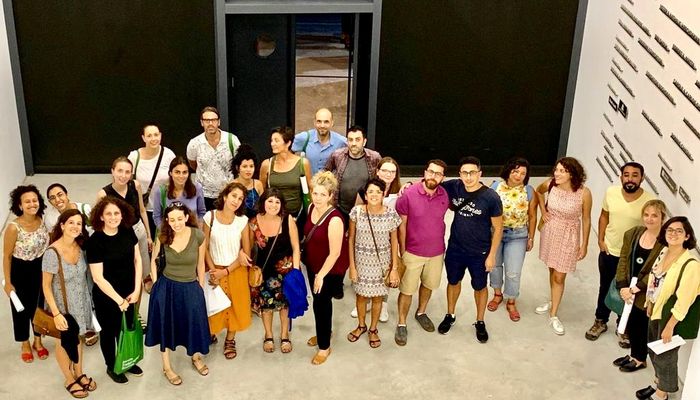The Berlin-based Forum Transregionale Studien, the Max Weber Stiftung – Deutsche Geisteswissenschaftliche Institute im Ausland and the Department of Arabic and Near Eastern Languages of the American University of Beirut (AUB) organize a Transregional Academy in the framework of the research program Europe in the Middle East—The Middle East in Europe (EUME). The Transregional Academy will be convened from August 26th to September 6th, 2019 at the AUB in Beirut on the topic of “Fragment – Power – Public: Narrative, Authority, and Circulation in Archival Work”.
Fragment – Power – Public: Narrative, Authority and Circulation in Archival Work
Convener: Rasha Chatta, Pascale Ghazaleh, Alia Mossallam, Lamia Moghnieh (all EUME Fellows), Zeina Halabi (AUB Beirut), Ala Younes (Amman)
American University Beirut
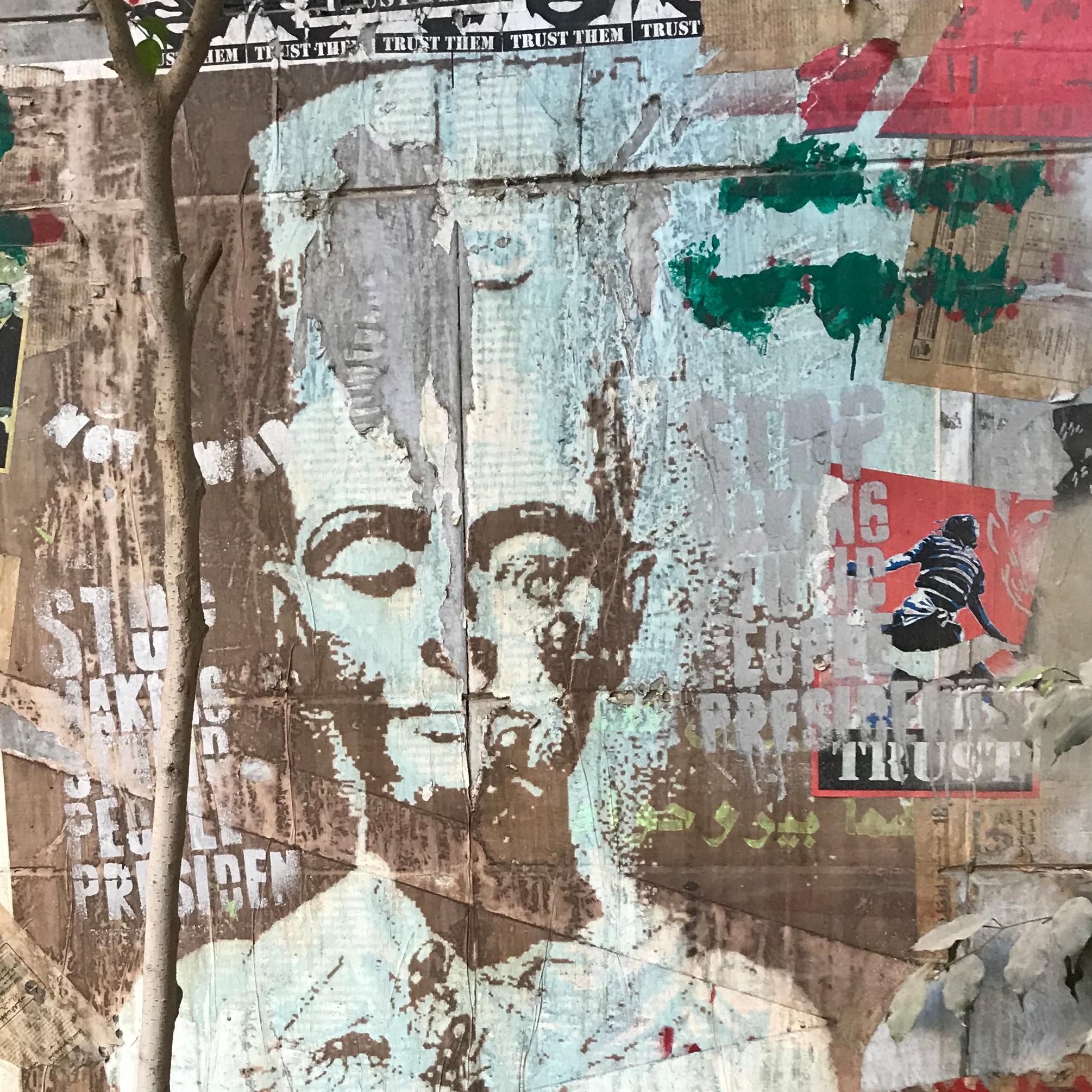
It will be chaired by Rasha Chatta (EUME Fellow 2018/19), Leyla Dakhli (CNRS / Centre Marc Bloch, Berlin), Pascale Ghazaleh (American University in Cairo / EUME Fellow of the Alexander von Humboldt Foundation 2017-19), Zeina G. Halabi (AUB / EUME Fellow of the Alexander von Humboldt Foundation 2018-20), Lamia Moghnieh (EUME Fellow of the Fritz Thyssen Stiftung 2019-20), Alia Mossallam (EUME Fellow of the Alexander von Humboldt Foundation 2017-18), and Ala Younis (artist). It is arranged in cooperation with the German Orient Institut in Beirut (OIB), the American University in Beirut (AUB), and the Arab Fund for Arts and Culture (AFAC).
Rationale
Scholars of history, culture and society in and of the Middle East, no matter what their political engagement, were swept up in the wave of Arab uprisings that started in 2010. The revolutions brought to a paroxysm a process of contestation that had been building since the 1990s, when new critiques began to challenge old narratives and ideologies and shake their hold on public space and the political sphere.
The return to the archives had opened up radical possibilities for social histories as early as the 1970s. Even then, for many scholars, turning to the archives was a way of exploring new narratives and questioning dominant discourses; but, since 2010, they have also found themselves formulating more fundamental questions related to the nature, constitution, and ownership of the archives. Excavating fragments of the past and attempts to document the present have led researchers to question the role of the state and its cultural practices in gathering and preserving these fragments, the nature of the public institutions involved in this endeavor, and the authority to define what legitimately constitutes an archive; the uprisings thus drove scholarship further beyond state-centered monistic narratives, to explore different historical and literary representations as sources for the production of knowledge and a reflection on the culture/power nexus. This interest, of course, has not been restricted to the academy: it has served to support work in curation, art, performance, and activism. New technologies supported one aspect of the archival turn, as evidenced by the development of digital humanities and the incorporation of such technologies into pedagogy. Thus, current research expands the boundaries of what constitutes legitimate membership in the community of historians, and intervenes in archival material through a variety of formats and venues.
This cross-disciplinary, international Transregional Academy also probes the ways in which the past, present and future have been and are imagined, represented, and reconfigured in modern historiography, literature, art and thought in archival work. Examining questions of aesthetics, genre, translation, and historiography, it aims to build on ongoing conversations about the practice of literary, artistic and historiographic excavation.
This Academy presents an opportunity for collaboration among different actors (historians, scholars of literature, anthropology and other disciplines, artists, graphic artists, performance artists in music, theatre and cinema, archivists, and others) and poses the following questions:
— How do we make sense of the increasing interest in archives by scholars and artists in and outside the Middle East?
— How do we relate the changes in technology and media, the new possibilities of storage and communication to the closure, disintegration, and to the policing of archives and people?
— How can we make archives and other historical narratives accessible in ways that are true to their forms (visual, sound, etc.) and conducive to more experiences and possibilities than those offered by monographs?
— How can we make our sources/narratives more accessible to a wider public through digital humanities and/or public history projects? And what are the limits?
— How can we cultivate relations between scholars and other practitioners to widen our scope for understanding and representing the archives with which we work?
— How can we, as scholars, work with (or without) certain gaps in the archive or with fragmented archives? And how can we deal with the abundance of facts and different readings?
— How to give voice to subjects and characters, whose experiences fall within and outside state archives?
— How have historians, writers, artists and intellectuals been engaged with the cultural or people's archives in modern times?
— How have excavation practices in literature transformed the literary and what is revealed from such practices of excavation?
The Transregional Academy is a format developed by the Forum Transregionale Studien. It is part of the strategic cooperation between the Forum Transregionale Studien and the Max Weber Stiftung – Deutsche Geisteswissenschaftliche Institute im Ausland and supported by the German Federal Ministry of Education and Research (Bundesministerium für Bildung und Forschung, BMBF).
The Berlin-based Forum Transregionale Studien is a research organization that promotes the internationalization of research in the humanities and social sciences. It is dedicated to a research agenda that systematically links disciplinary approaches and the expertise of area studies, by focusing on entanglements and interactions across national, cultural or regional borders. The Forum is supported by the Land of Berlin.
Europe in the Middle East—The Middle East in Europe (EUME) is a research program at the Berlin-based Forum Transregionale Studien. EUME seeks to rethink key concepts and premises that link and divide Europe and the Middle East. EUME builds upon the previous work of the Working Group Modernity and Islam (1996-2006), the idea of “learning communities,” and the principle of “research with, rather than research on.” It allows for the invitation of 10 to 20 postdoctoral researchers every year, the organization of (summer) academies, workshops, and regular seminars. So far more than 250 scholars have been EUME fellows.
The Max Weber Stiftung promotes global research, concentrated around the areas of social sciences, cultural studies, and the humanities. Research is conducted at ten institutes in various countries worldwide with distinctive and independent focal points. Through its globally operating institutes, the Foundation is able to contribute to the communication and networking between Germany and the host countries or regions of its establishments.

